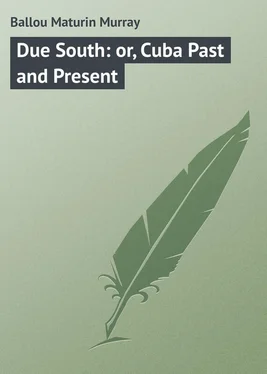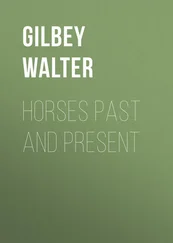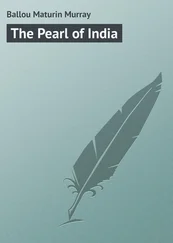Maturin Ballou - Due South - or, Cuba Past and Present
Здесь есть возможность читать онлайн «Maturin Ballou - Due South - or, Cuba Past and Present» — ознакомительный отрывок электронной книги совершенно бесплатно, а после прочтения отрывка купить полную версию. В некоторых случаях можно слушать аудио, скачать через торрент в формате fb2 и присутствует краткое содержание. ISBN: , Жанр: foreign_prose, на английском языке. Описание произведения, (предисловие) а так же отзывы посетителей доступны на портале библиотеки ЛибКат.
- Название:Due South: or, Cuba Past and Present
- Автор:
- Жанр:
- Год:неизвестен
- ISBN:http://www.gutenberg.org/ebooks/30130
- Рейтинг книги:4 / 5. Голосов: 1
-
Избранное:Добавить в избранное
- Отзывы:
-
Ваша оценка:
- 80
- 1
- 2
- 3
- 4
- 5
Due South: or, Cuba Past and Present: краткое содержание, описание и аннотация
Предлагаем к чтению аннотацию, описание, краткое содержание или предисловие (зависит от того, что написал сам автор книги «Due South: or, Cuba Past and Present»). Если вы не нашли необходимую информацию о книге — напишите в комментариях, мы постараемся отыскать её.
Due South: or, Cuba Past and Present — читать онлайн ознакомительный отрывок
Ниже представлен текст книги, разбитый по страницам. Система сохранения места последней прочитанной страницы, позволяет с удобством читать онлайн бесплатно книгу «Due South: or, Cuba Past and Present», без необходимости каждый раз заново искать на чём Вы остановились. Поставьте закладку, и сможете в любой момент перейти на страницу, на которой закончили чтение.
Интервал:
Закладка:
The tropical garden which we visited just outside of Cienfuegos embraced a remarkable variety of trees, including some thrifty exotics. Here the mango, with its peach-like foliage, was bending to the ground with the weight of its ripening fruit; the alligator pear was marvelously beautiful in its full blossom, suggesting, in form and color, the passion-flower; the soft delicate foliage of the tamarind was like our sensitive plant; the banana trees were in full bearing, the deep green fruit (it is ripened and turns yellow off the tree) being in clusters of a hundred, more or less, tipped at the same time by a single, pendent, glutinous bud nearly as large as a pineapple. The date-palm, so suggestive of the far East, and the only one we had seen in Cuba, was represented by a choice specimen, imported in its youth. There was also the star-apple tree, remarkable for its uniform and graceful shape, full of the green fruit, with here and there a ripening specimen; so, also, was the favorite zapota, its rusty-coated fruit hanging in tempting abundance. From low, broad-spreading trees depended the grape-fruit, as large as an infant's head and yellow as gold, while the orange, lime, and lemon trees, bearing blossoms, green and ripe fruit all together, met the eye at every turn, and filled the garden with fragrance. The cocoanut palm, with its tall, straight stem and clustering fruit, dominated all the rest. Guava, fig, custard-apple, and bread-fruit trees, all were in bearing. Our hospitable host plucked freely of the choicest for the benefit of his chance visitors. Was there ever such a fruit garden before, or elsewhere? It told of fertility of soil and deliciousness of climate, of care, judgment, and liberal expenditure, all of which combined had turned these half a dozen acres of land into a Gan Eden. Through this orchard of Hesperides we were accompanied also by the proprietor's two lovely children, under nine years of age, with such wealth of promise in their large black eyes and sweet faces as to fix them on our memory with photographic fidelity.
Before leaving the garden we returned with our intelligent host once more to examine his beautiful specimens of the banana, which, with its sister fruit the plantain, forms so important a staple of food in Cuba and throughout all tropical regions. It seems that the female banana tree bears more fruit than the male, but not so large. The average clusters of the former comprise here about one hundred, but the latter rarely bears over sixty or seventy distinct specimens of the cucumber-shaped product. From the centre of its large broad leaves, which gather at the top, when it has reached the height of twelve or fifteen feet there springs forth a large purple bud ten inches long, shaped like a huge acorn, though more pointed. This cone hangs suspended from a strong stem, upon which a leaf unfolds, displaying a cluster of young fruit. As soon as these are large enough to support the heat of the sun and the chill of the rain, this sheltering leaf drops off, and another unfolds, exposing its little brood of fruit; and so the process goes on until six or eight rings of young bananas are started, forming, as we have said, bunches numbering from seventy to a hundred. The banana is a herbaceous plant, and after fruiting its top dies; but it annually sprouts up again fresh from the roots. From the unripe fruit, dried in the sun, a palatable and nutritious flour is made.
No matter where one may be, in town or country, in the east or west end of the island, Santiago or Havana, the lottery-ticket vender is there. Men, women, and children are employed to peddle the tickets, cripples especially being pressed into the service in the hope of exciting the sympathies of strangers and thus creating purchasers. It may be said to be about the only prosperous business at present going on in this thoroughly demoralized island. Half the people seem to think of nothing else, and talk of dreaming that such and such combinations of numbers will bring good luck. Some will buy only even numbers, others believe that the odd ones stand the best chance of winning; in short, all the gambling fancies are brought to bear upon these lotteries. Enough small prizes are doled out to the purchasers of tickets, by the cunning management, to keep hope and expectation ever alive in their hearts, and to coax out of them their last dollar in further investments. "If," said a native resident of Matanzas to us, "these lotteries, all of which are presided over by the officials, are honestly conducted, they are the one honest thing in which this government is concerned. Venal in everything else, why should they be conscientious in this gambling game?" No one believes in the integrity of the government, but, strange to say, the masses have implicit faith in the lotteries.
At one corner of our hotel in Cienfuegos, there sat upon the sidewalk of the street a blind beggar, a Chinese coolie, whose miserable, poverty-stricken appearance elicited a daily trifle from the habitués of the house. Early one morning we discovered this representative of want and misery purchasing a lottery ticket. They are so divided and subdivided, it appears, as to come even within the means of the street beggars! Speaking of blindness, the multiplicity of people thus afflicted, especially among negroes and coolies, led to the enumeration of those met with in a single day; the result was seventeen. On inquiry it was found that inflammation of the eyes is as common here as in Egypt, and that it runs a rapid and fatal course, – fatal to the sight after having once attacked a victim, unless it receives prompt, judicious, and scientific treatment.
The Chinese coolies, who are encountered in all parts of the island, but more especially in the cities, are almost invariably decrepit, poverty-stricken mendicants, and very frequently blind. They are such as have been through their eight years' contract, and have been brought to their present condition by ill-treatment, insufficient food, and the troubles incident to the climate. In the majority of cases these coolies have been cheated out of the trifling amount of wages promised to them, for there is no law in Cuba to which they can appeal. There are laws which will afford the negro justice if resorted to under certain circumstances, but none for the coolies. There are some few Chinamen who have survived every exigency, and are now engaged in keeping small stores or fruit stands, cigar making, and other light employments, their only hope being to gain money enough to carry them back to their native land, and to have a few dollars left to support them after getting there. There are no Chinese laundries in Cuba; John cannot compete with the black women in this occupation, for they are natural washers and ironers. John is only a skillful imitator. He proves most successful in the cigarette and cigar factories, where his deft fingers can turn out a more uniform and handsome article than the Cubans themselves. Machinery is fast doing away with hand-made cigarettes. At the famous establishment of La Honradez, in Havana, which we visited some weeks later, one machine was seen in operation which produced ten thousand complete cigarettes each hour, or a million per day! Still this same establishment employed some fifty Chinese in order to supply its trade with the hand-made article, for home consumption. The Cubans prefer to unroll and readjust a cigarette before lighting it. This cannot be done with the machine-made article, which completes its product by a pasting process. The three machines (an American patent) at the Honradez factory turn out three millions of cigarettes per day, and this is in addition to those which are hand-made by the Chinese.
The landlord of the Hotel Union, at Cienfuegos, will give you plenty of fruit and cheap Cataline wine, but the meat which is served is poor and consists mostly of birds. Any other which may be set before you will hardly be found to be a success, but then one does not crave much substantial food in this climate. There is a small wild pigeon which forms a considerable source of food in Cuba, and which breeds several times in a year. They are snared and shot in large numbers for the table, but do not show any signs of being exterminated. Ducks and water-fowl generally abound, and are depended upon to eke out the short supply of what we term butcher's meat. Three quarters of the people never partake of other meat than pigeons, poultry, and wild ducks. Eggs are little used as food, being reserved for hatching purposes. All families in the country and many in the cities make a business of raising poultry, but the product is a bird of small dimensions, not half the size of our common domestic fowls. They are very cheap, but they are also very poor. The practice is to keep them alive until they are required for the table, so that they are killed, picked, and eaten, all in the same hour, and are in consequence very tough. As the climate permits of hens hatching every month in the year, the young are constantly coming forward, and one mother annually produces several broods; chickens, like tropical fruits, are perennial.
Читать дальшеИнтервал:
Закладка:
Похожие книги на «Due South: or, Cuba Past and Present»
Представляем Вашему вниманию похожие книги на «Due South: or, Cuba Past and Present» списком для выбора. Мы отобрали схожую по названию и смыслу литературу в надежде предоставить читателям больше вариантов отыскать новые, интересные, ещё непрочитанные произведения.
Обсуждение, отзывы о книге «Due South: or, Cuba Past and Present» и просто собственные мнения читателей. Оставьте ваши комментарии, напишите, что Вы думаете о произведении, его смысле или главных героях. Укажите что конкретно понравилось, а что нет, и почему Вы так считаете.












